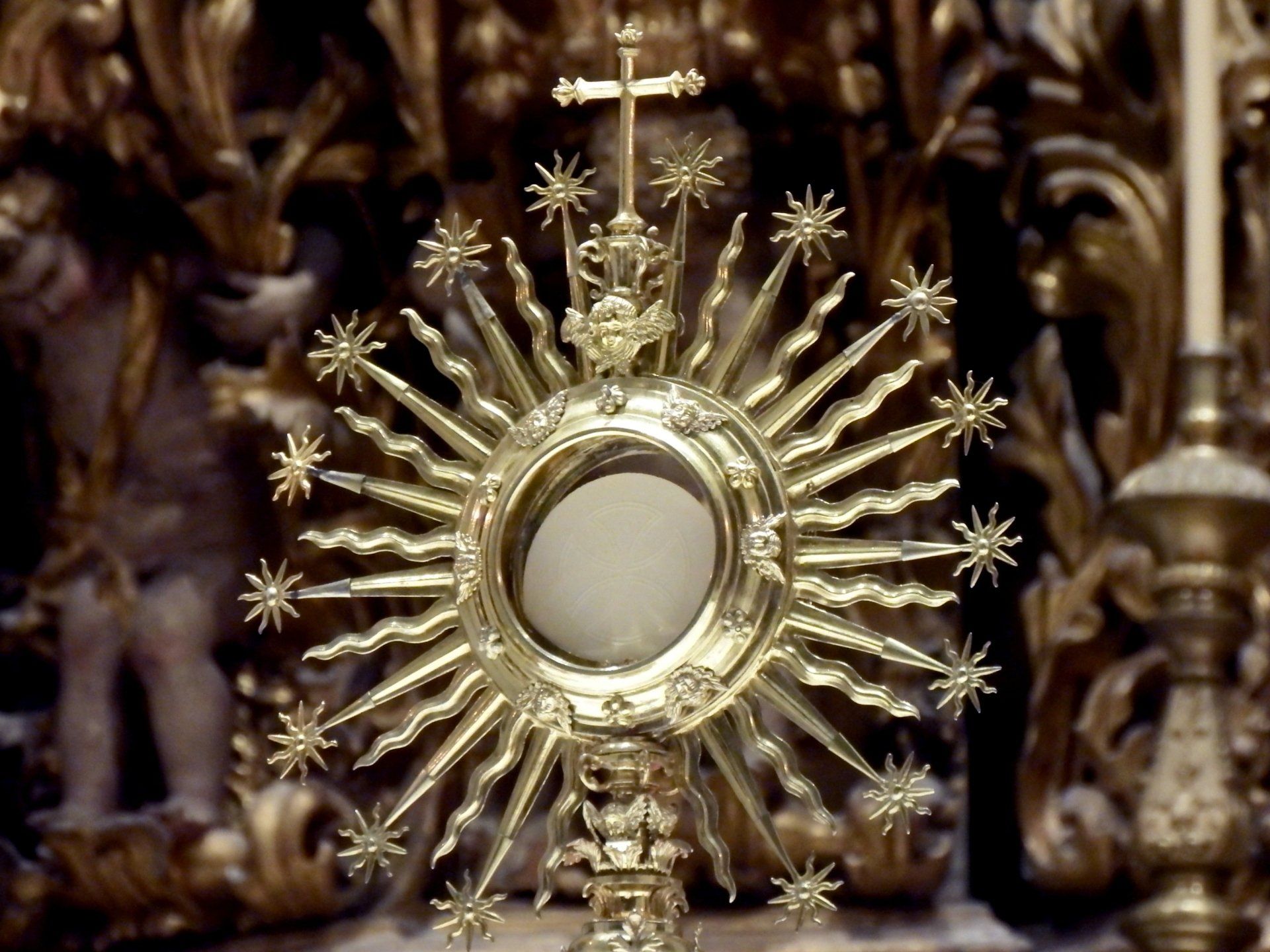

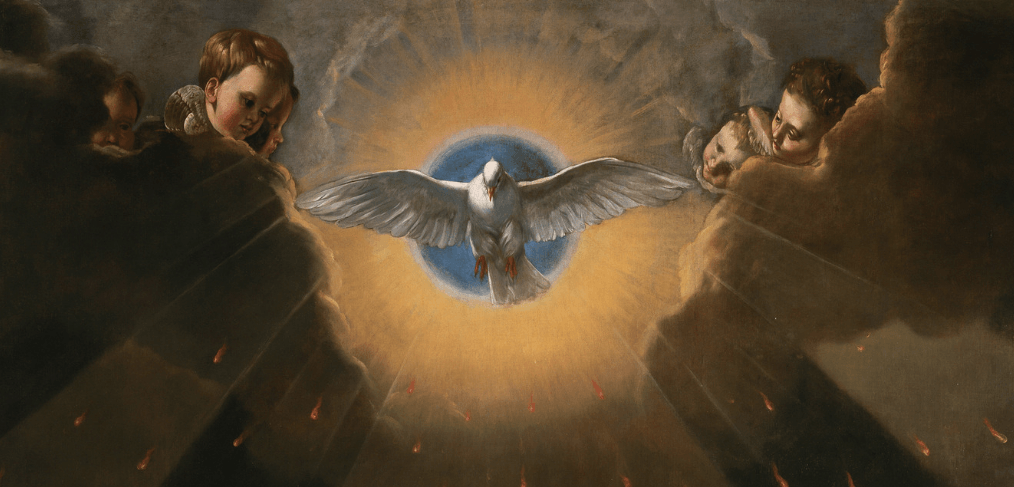
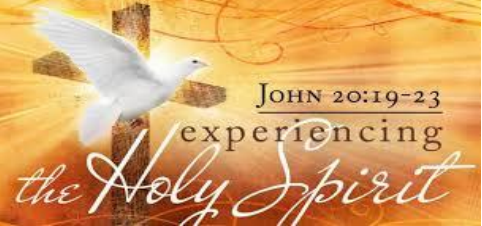
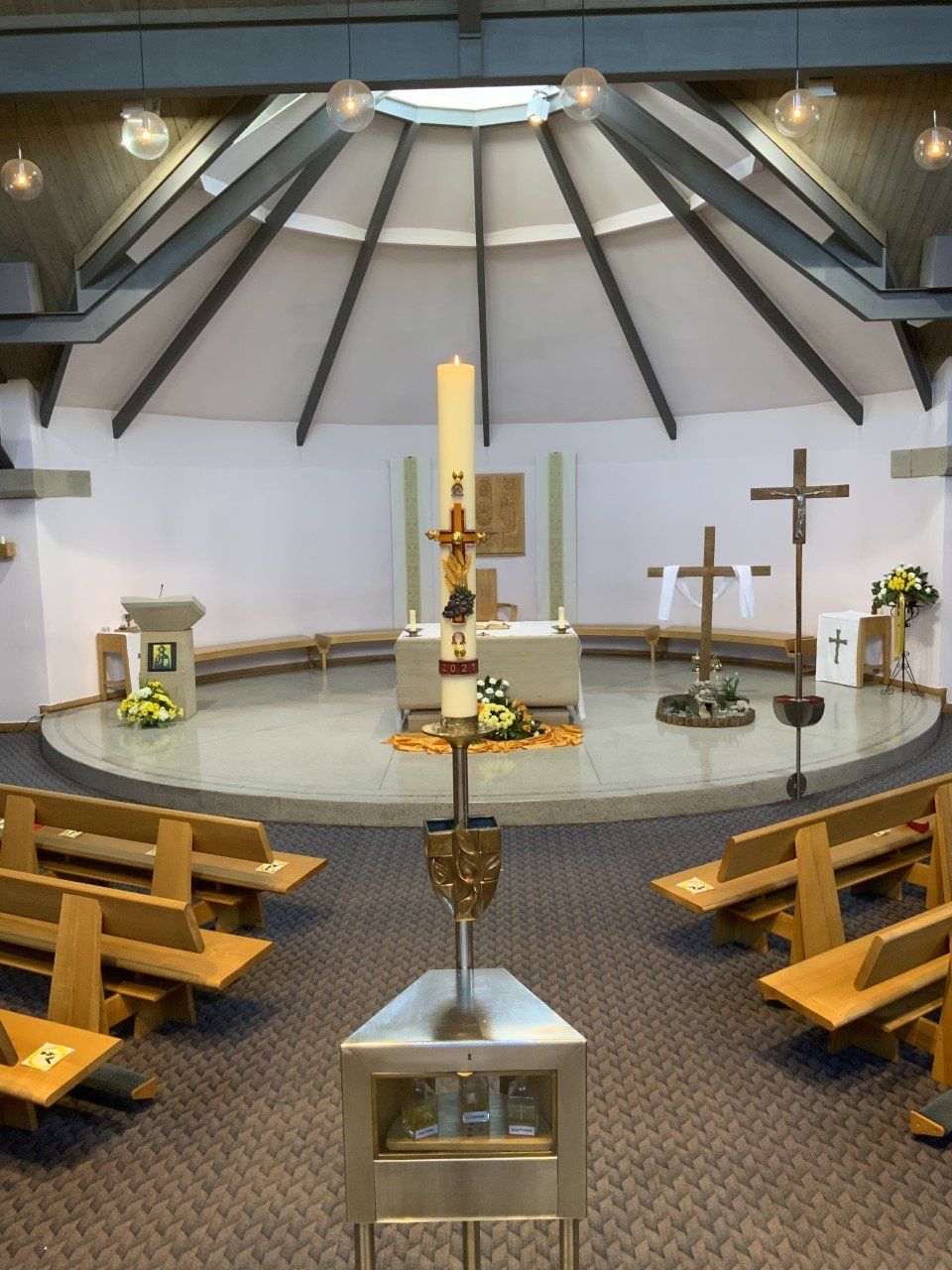
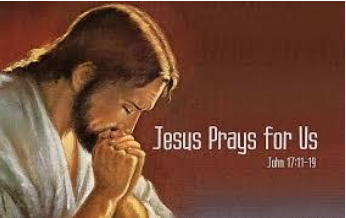


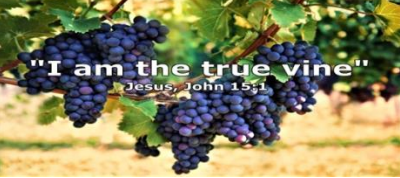
Total Consecration Jesus is a beautiful exercise to increase your spirituality and ability to truly serve our Lord Jesus Christ. The basic premise set forth by St. Louis Marie de Montfort is simply that Jesus came into the world through Mary and that for us to always be assured of being close to Jesus, even closer than ever before, we should go through Mary. Initially, this idea may seem strange to some. Why consecration? And why consecration through Mary?
What does that even mean? Consecration means to set aside for a sacred purpose. Mary’s life was set aside for the sole purpose of serving our Lord. By following her example, we, too, can completely give ourselves to Christ in a fundamental way that consecrates us to Him. We give our lives to Him in service and love.
There are many versions of the 33-day Consecration. There are two different versions in the Narthex. The photocopied sheets contain a more traditional approach and the book 33 Days to Morning Glory is a more modern one. Also, there is plenty of great information online at https://totalconsecration.newevangelizers.com/
or
https://www.knightsoftheholyeucharist.com/total-consecration/








